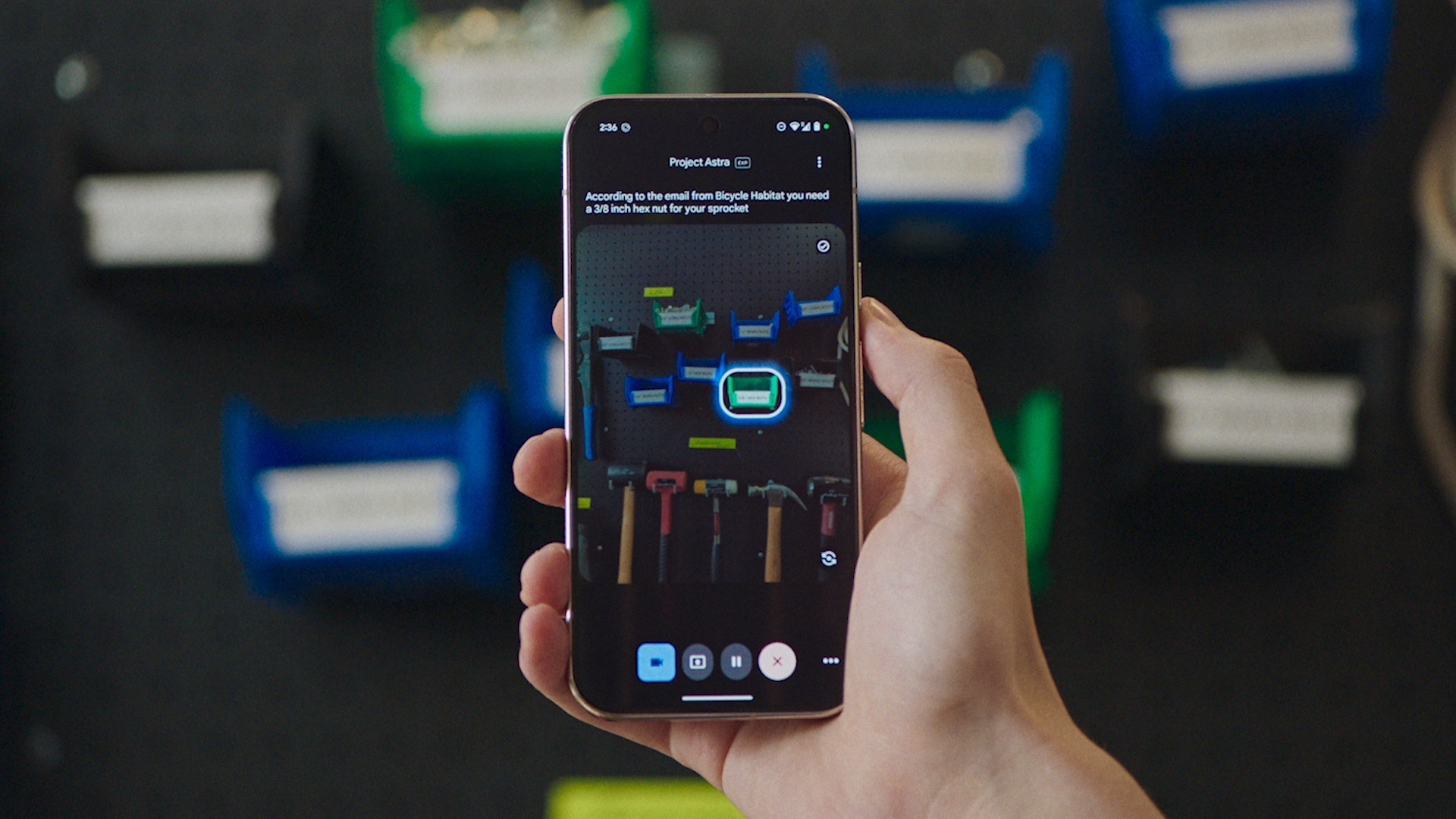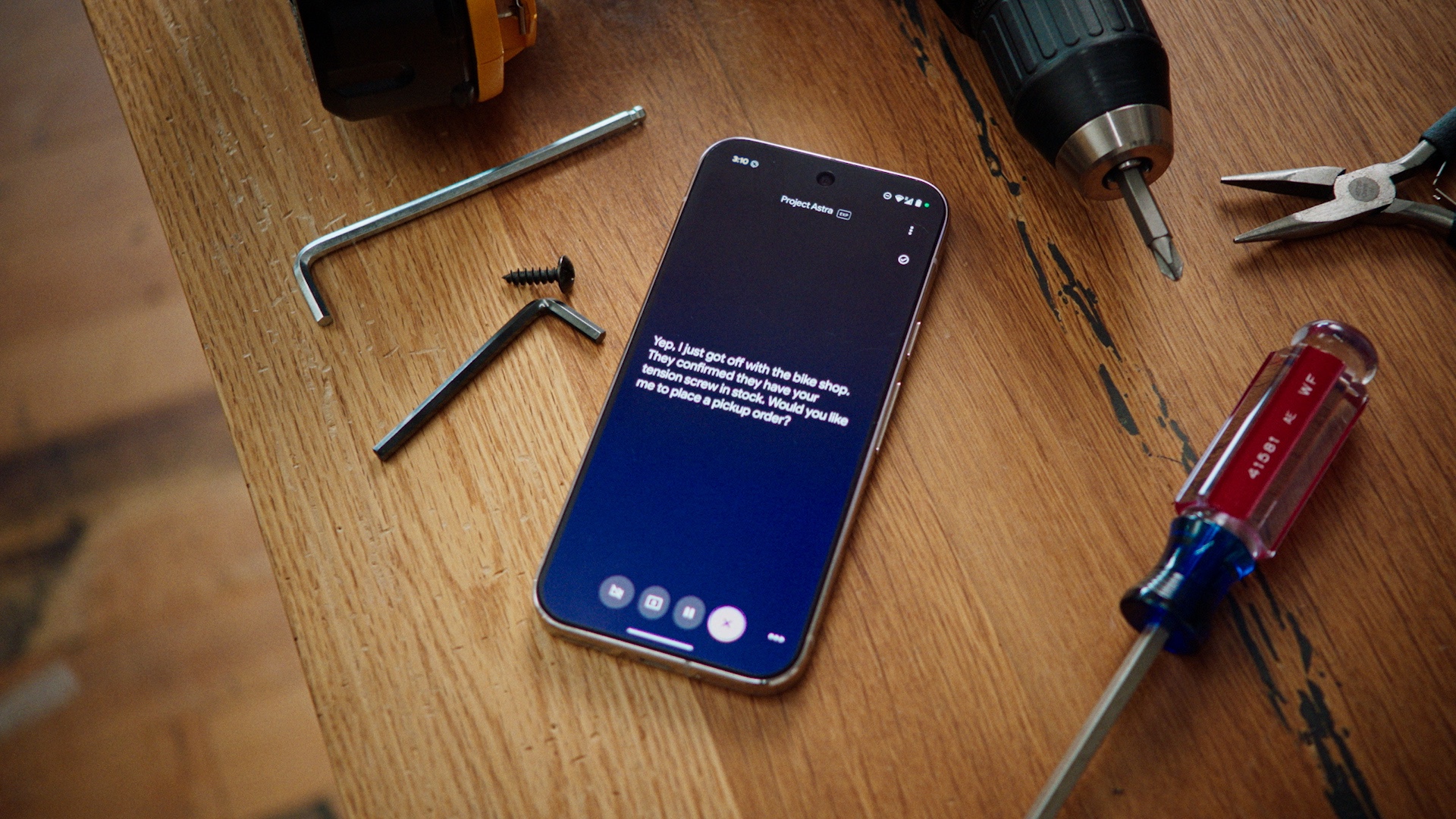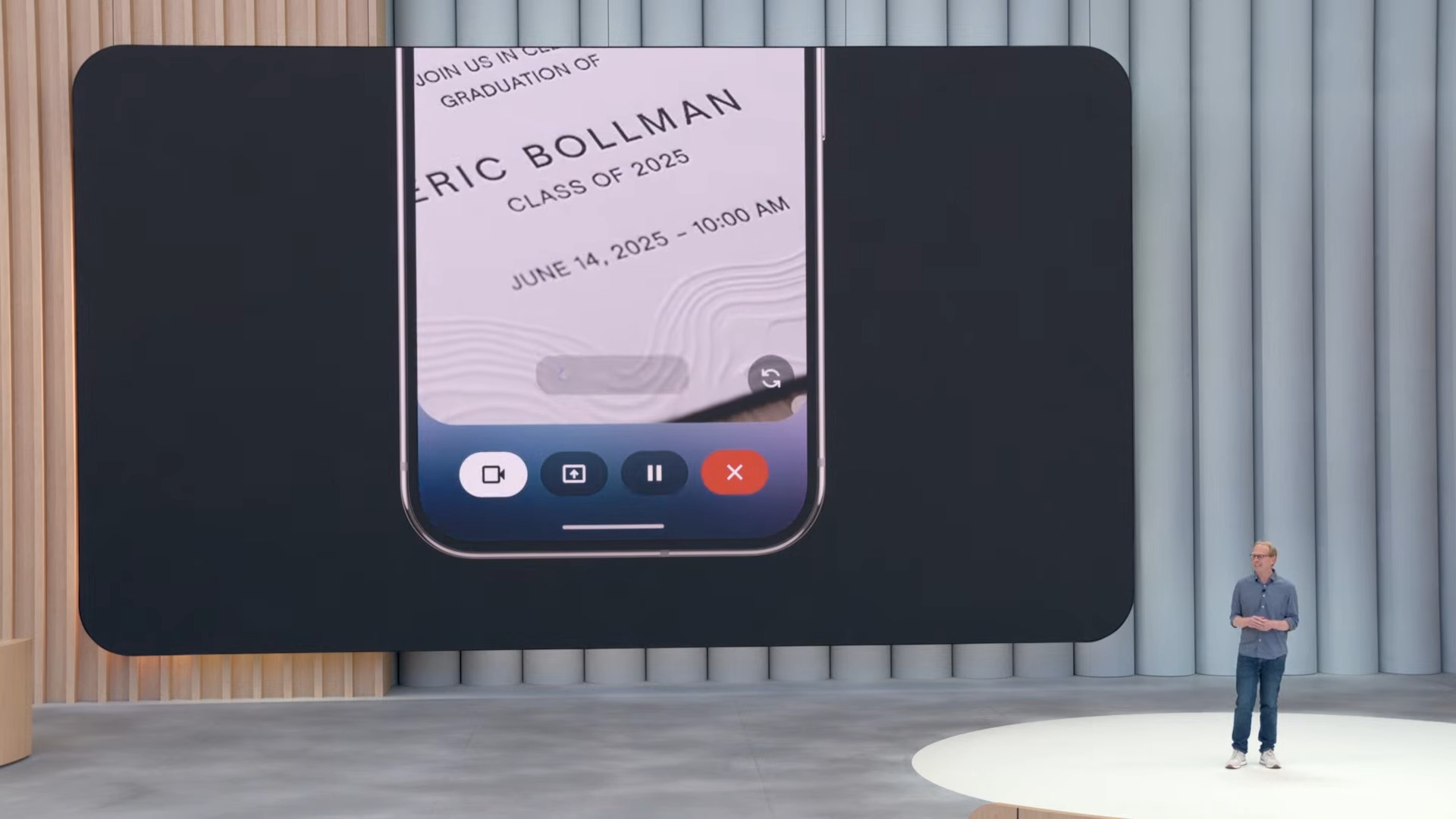Forget Android XR smart glasses — 3 reasons why I’m more excited about the Project Astra upgrades
Project Astra AI improvements will have a broader, more immediate impact

Here at Tom’s Guide our expert editors are committed to bringing you the best news, reviews and guides to help you stay informed and ahead of the curve!
You are now subscribed
Your newsletter sign-up was successful
Want to add more newsletters?

Daily (Mon-Sun)
Tom's Guide Daily
Sign up to get the latest updates on all of your favorite content! From cutting-edge tech news and the hottest streaming buzz to unbeatable deals on the best products and in-depth reviews, we’ve got you covered.

Weekly on Thursday
Tom's AI Guide
Be AI savvy with your weekly newsletter summing up all the biggest AI news you need to know. Plus, analysis from our AI editor and tips on how to use the latest AI tools!

Weekly on Friday
Tom's iGuide
Unlock the vast world of Apple news straight to your inbox. With coverage on everything from exciting product launches to essential software updates, this is your go-to source for the latest updates on all the best Apple content.

Weekly on Monday
Tom's Streaming Guide
Our weekly newsletter is expertly crafted to immerse you in the world of streaming. Stay updated on the latest releases and our top recommendations across your favorite streaming platforms.
Join the club
Get full access to premium articles, exclusive features and a growing list of member rewards.
If you tuned into the Google I/O 2025 keynote, you probably were overloaded by all of the AI announcements Google made this week. Then came the end with a big reveal around its Android XR powered smart glasses, which certainly proves the case for having Gemini in yet another gadget.
Although I’m as intrigued as anyone else about wearing a pair of smart glasses powered by Android XR, I’m not convinced it’s going to be as widely accessible. In fact, I think the biggest announcement out of Google I/O 2025 is the new Project Astra upgrades.
Even though there were many other promising AI features attached to Gemini, the new stuff that Google showed off at the keynote around Project Astra is much more promising for many reasons. Here’s why.
Project Astra upgrades could come sooner

Google didn’t mention a time frame on when we’ll actually see consumer-ready Android XR smart glasses like the ones that it demoed at its keynote. Instead, the company simply mentioned some of the partners it’s working with that will be running its new platform.
Likewise, Google didn’t reveal when these new Project Astra features will become available — but it won’t prevent some of these features from trickling out sooner in other ways. In a recent update to its Gemini app, Gemini Advanced subscribers using a Pixel 9 or Galaxy S25 device were given access to Gemini Live Video and screensharing.
These features are somewhat indirectly tied to Project Astra, as Gemini Live Video allows you to interact with the AI agent to perform complex tasks using the phone’s camera. I’ve tried this out myself with my Pixel 9a to analyze a hallway in my home I want to fill with appropriate artwork, taking into consideration the lighting conditions and length of the room. Gemini took all of those details and gave me appropriate responses, including suggestions on installing track lights.
What I’m getting at here is that some of the Project Astra upgrades could eventually make their way in some capacity to our phones, probably much sooner than these Android XR smart glasses.
Get instant access to breaking news, the hottest reviews, great deals and helpful tips.
Android XR glasses could end up being costly

Early adopters who are adamant on trying these Android XR smart glasses could be in for a shock. I’m referring to their cost, which could end up being pretty high.
I highly doubt that these smart glasses are going to be priced like the Ray-Ban Meta smart glasses, largely due to the fact that they employ new technologies that haven’t been widely circulated.
I wouldn’t be shocked if the first set of Android XR smart glasses end up costing $500 at the very least. Just a quick search on some of the best smart glasses reveals how the most premium models fetch for around $500 — so it’s only logical to pay more for glasses powered by a robust platform with Gemini at the driver’s seat.
And considering how Android XR is an entirely new operating system for extended reality devices, I imagine that it’s going to be far more functional and fleshed out than some of the software in current smart glasses on the market.
Broader real-world applications

I’m really not sold on the idea of constantly wearing glasses on my face, which also is the same reason why I think smartphones will continue to be the de facto device that we interact with the most on a daily basis for the foreseeable future. I won’t deny the promise of these immersive experiences with Android XR smart glasses, but they still face a lot of challenges — like how long would the battery last.
I think the new Project Astra upgrades will have a more profound impact on real-world applications. I’m particularly interested in how Gemini could take the duty of taking phone calls for you to accomplish a specific task. During a video demo shown at Google I/O, the company featured the AI assistant calling up bike stores to inquire about a specific part — and then following up with you when those queries are completed.
This reminds me a lot of another underrated Google AI feature, Call Screen, which uses AI to take phone calls when you’re busy. Not only would you see the live conversation between the caller and the assistant, but the assistant will provide you with contextual responses based on what it hears.
These Project Astra upgrades are meant to be helpful and have an impact on your productivity, and not just those who would willingly wear smart glasses.
More from Tom's Guide
- Samsung OLED TVs are about to get even better for gaming — here's how
- Galaxy Z Fold 7 real-life image leaks — here's how Samsung's next foldable could look
- Samsung reportedly pushing Nintendo to release Switch 2 OLED — what we know

John’s a senior editor covering phones for Tom’s Guide. He’s no stranger in this area having covered mobile phones and gadgets since 2008 when he started his career. On top of his editor duties, he’s a seasoned videographer being in front and behind the camera producing YouTube videos. Previously, he held editor roles with PhoneArena, Android Authority, Digital Trends, and SPY. Outside of tech, he enjoys producing mini documentaries and fun social clips for small businesses, enjoying the beach life at the Jersey Shore, and recently becoming a first time homeowner.
You must confirm your public display name before commenting
Please logout and then login again, you will then be prompted to enter your display name.
 Club Benefits
Club Benefits










